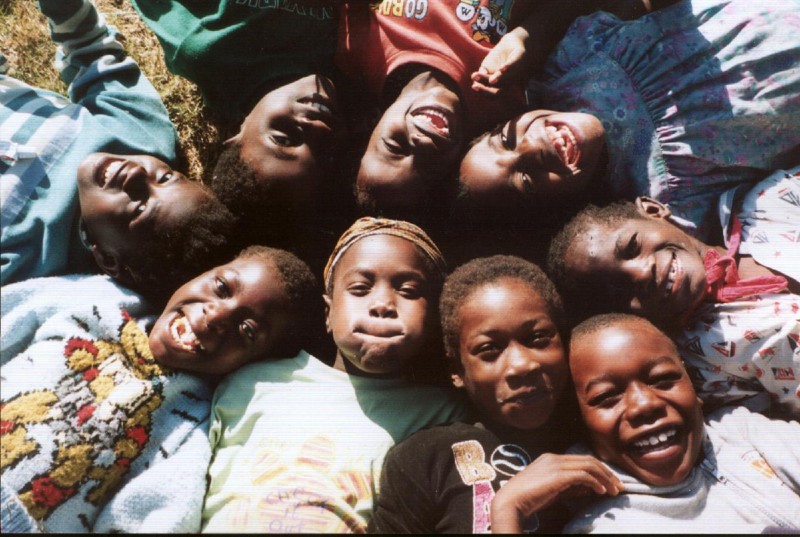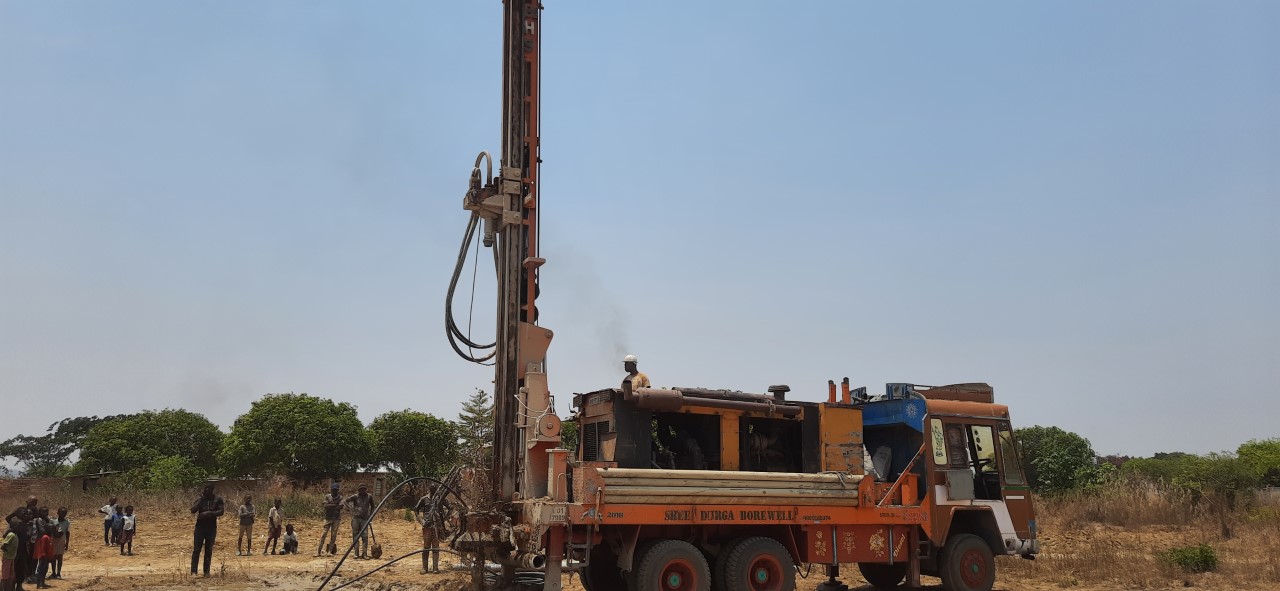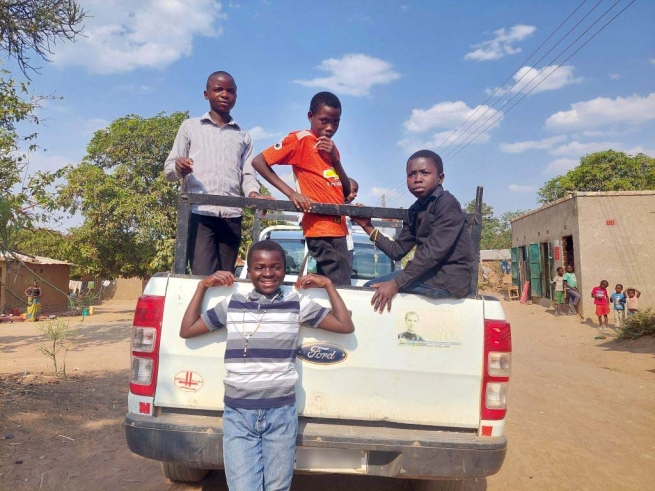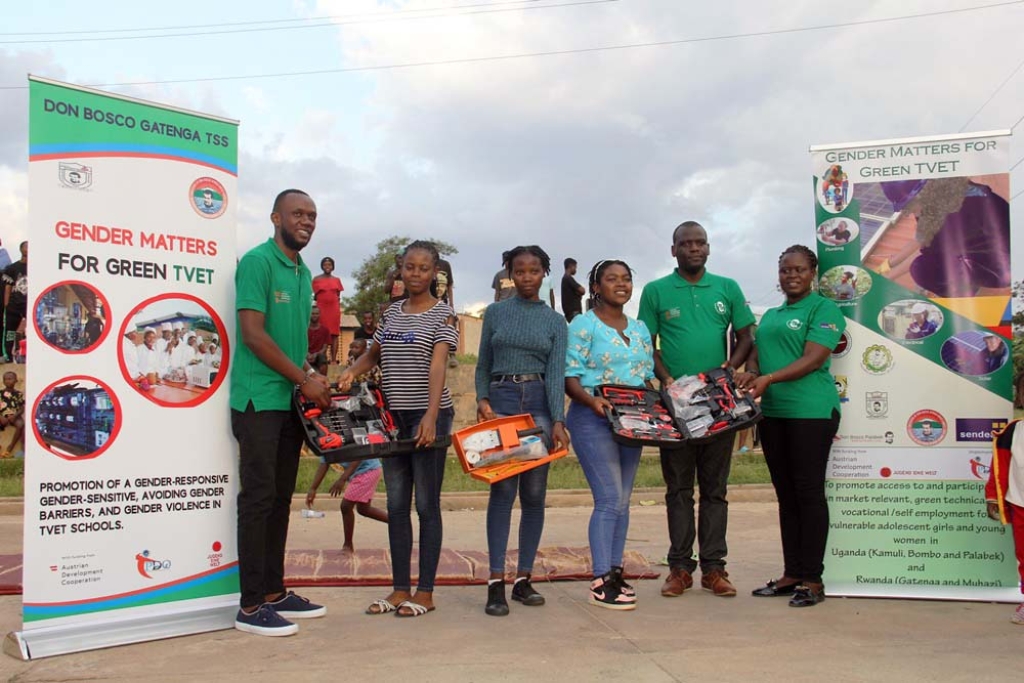INTERNATIONAL YOUTH DAY: Salesian Missions Highlights Programs that Help Eradicate Poverty and Provide Eco-Sustainability in Communities

(MissionNewswire) Salesian Missions joins the United Nations and other organizations around the globe in recognizing International Youth Day.
Celebrated each year on Aug. 12, the day was established by the United Nations to raise awareness of issues affecting young people around the world. The theme of International Youth Day 2016, is “The Road to 2030: Eradicating Poverty and Achieving Sustainable Consumption and Production.” It focuses on the leading role of young people in ensuring the eradication of poverty and achieving sustainable development through sustainable consumption and production, which entails the use of products and services that meet the basic needs of communities while safeguarding the needs of future generations.
The United Nations notes that the development and promotion of individual choices and actions that increase the eco-efficiency of consumption of all and minimize waste and pollution is critical to achieving equitable socioeconomic development.
“The world’s young people – who make up the largest generation of youth in history – can lead a global drive to break the patterns of the past and set the world on course to a more sustainable future. Young people are directly affected by the tragic contradictions that prevail today: between abject poverty and ostentatious wealth, gnawing hunger and shameful food waste, rich natural resources and polluting industries. Youth can deliver solutions on these issues, which lie at the heart of the 2030 Agenda for Sustainable Development,” said UN Secretary-General Ban Ki-Moon in a statement on International Youth Day 2016. “In this first year of that 15-year plan for a healthier, safer and more just future, we count on the active engagement of the world’s young people to transform the production and consumption of goods and services so they meet the basic needs and aspirations of the world’s poorest people without overburdening already strained ecosystems.”
Working in more than 130 countries around the globe, Salesian missionaries focus on education, workforce development programs, social development services and human rights education to provide young people with the knowledge and skills needed to gain employment and break the cycle of poverty and enable them to lead productive lives and become contributing members of their communities.
“For youth to be actively engaged in their communities they must have access to education and other basic human services that allow them to feel valued and that their voices will be heard,” says Father Mark Hyde, executive director of Salesian Missions, the U.S. development arm of the Salesians of Don Bosco. “Salesian missionaries meet the basic needs of disadvantaged youth who often have nowhere else to turn. They also provide education and social and workforce development services to ensure a positive transition into adulthood.”
In honor and celebration of International Youth Day 2016, Salesian Missions is proud to highlight Salesian programs that help eradicate poverty and provide eco-sustainability in communities.
The Bosco Tea Project, funded by Anma Integrated Development Association (AIDA), the development wing of the Dimapur Province of the Salesians of Don Bosco, was developed in 2008 to help tea garden laborers in Assam, India, a state in northeastern India known for its wildlife, archeological sites and tea plantations. To date, the project has helped more than 700 families. The tea estates are tended to by laborers who despite working long hours, often do not make enough wages to meet their basic needs or escape poverty. Many tea laborers own their own small parcels of land but, for various reasons, leave the land uncultivated while they leave home to work at larger tea estates.
Tea laborers are provided start-up assistance either through financial resources or through the donation of tea saplings, which helps them to develop their own business and gain financial security. Laborers are also taught business and technical skills relating to the tea market and, capitalizing on their years of working on larger tea estates, they are able to develop a sustainable income to help them escape poverty. Many former laborers have developed stronger self-confidence and a renewed sense of dignity through the project.
Salesian missionaries are launching an organic cocoa plantation in Ginatilan, Cebu, an island province in the Philippines consisting of the main island itself and 167 surrounding islands and islets. The new project will be built on 500 square meters of land and is expected to accommodate 200 cocoa plants that will bear fruit in a short time. The project will also build a house with dormitories, kitchen and bathroom facilities for staff. The goal of the project is to counter child labor and the harsh labor conditions often found in the cocoa industry.
Salesian missionaries are launching this new project to train agricultural technicians on the cocoa crop so they can manage the nursery. This project will empower farmers interested in working in the cocoa industry to start their own farms by learning the best agriculture techniques and the business practices to sell their project on the market. The farm will also provide a model for humane working conditions for the farmers and provide hands-on training for youth who are taking course work in agriculture education.
Salesian missionaries at their community in Kazembe, a town in the Luapula Province of Zambia, just completed a water project providing fresh, clean water to the youth and families attending their the St. John Bosco parish, oratory and school. Despite Luapula province having vast rivers and lakes, residents face challenges accessing clean water. Salesian missionaries completed a water project that included drilling a new water well at the parish, which will provide clean, fresh water to the surrounding communities. Prior to the new well many youth could not participate in parish activities because they needed to spend the majority of their time in search of clean waters. The community was facing a health crisis because many were getting sick due to water borne diseases. It was also not uncommon that residents were also attacked by crocodiles when they went to the river for water.
The water project included digging a borehole 50 meters deep followed by the installation of a water pump. After that the tank and tank stand was completed. Salesian missionaries utilized 12 male students at the Salesian school to assist with digging and laying the water pipes around the church grounds. Students were able to apply some of the skills they learned in the classroom and gained hands-on experience. This allowed for four separate running water stations around the church grounds that provide water to the community. Now that the community has access to fresh water, students are able to fully participate in their educational programs and the other recreational programs provided at the youth center. There has also been a decrease in water borne illnesses within the community.
###
Sources:
UN – Message of the UN Secretary-General on International Youth Day 2016




